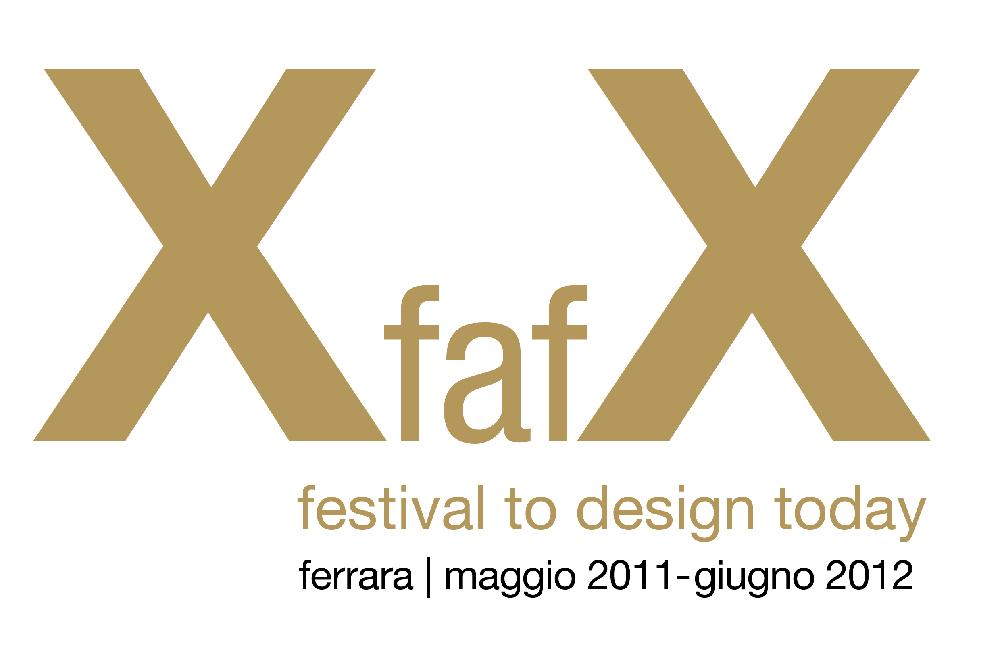Foundation 20th Anniversary: XfafX
December 16, 2011
In 2011 the Ferrara Architecture Faculty celebrates the 20th anniversary since its foundation. Four lustrums of intense institutional life, which have seen a variety of phases, even overlapping at times: Certificate of Incorporation and Foundation of the School, the start of training and research activities; creation of a scientific community, thesis sessions with young graduates from Ferrara, who gradually made their way into the professional fabric of the country, the establishment of the Faculty at a national level (topping the CENSIS classifications eight times first in the last ten years), cultural celebration of the 10th Anniversary of the Foundation, expansion of the rooms with the renovation of the Tassoni Estense Palace, the launch of the Degree Course in Industrial Design.
With the arrival of 2011 – and here we are today – the Faculty has reached its twentieth year of life at a special time for the Italian university with a general transformation project underway, and a severe reduction in the available economic resources for training, research, and cultural projects.
The reform, holding on to the traditional foundation elements and governance of the Italian University, pushes the academic world redefine its own role, to rewrite the idea of autonomy, to rethink how training, research, production and spread of knowledge should be understood.
This process breaks consolidated staples, it leads to unprejudiced discussion, it encourages the acceptance of the challenge to overcome the restrictions and criticalities brought about by a more general economic crisis, it points out the opportunity to harmonise the dialogue and collaboration relations inside and outside of the university.
It is underlined the necessity of reconnecting the university institution to background, targets, needs of the society, which have been recently changing and evolving in view of an even more static and self-referential university.
In this new framework the university is asked to provide its own contribution placing, as a common factor, research, knowledge, creativity, innovation, as scenarios of potential motivation towards the growth and the development of the country.
The presumed divergence between culture and economy, between public university and private enterprises – wearily turned down until today by many components of the academic world – seems increasingly laughable from a theoretical standpoint and unsustainable in regards to the material conditions in which the structures for formation and research financed by the State are operating.
The individual research units within Universities, Faculties, and Departments are faced with the need to set out strategies, in short term, in order to diversify, specialise, to support themselves economically through institutional fund-raising projects, by getting involved synergically with the world of economy and enterprise, institutions and service Centres.
At this stage the University poles are pushed to redefine themselves in order to become “attractive” to the real economy and put themselves forward no longer as mere public expense departments, but as intangible investment assets in the form of knowledge and innovation development.
Promoting research and culture as competitive levers of the economy means operating a reconversion of the in-house vision of the University – similar to that carried out in the manufacturing field, which has come out its closed factory logic to equip itself in regards to the dynamic and fluid logic of the global economy – causing it to gradually open itself in relation to the civil and productive world.
The universities that will be able to innovate by focusing on updated research and training models, on spreading cultural and scientific learning, on advanced knowledge and continuous interchange with the vibrant and evolving world of real economy will succeed in securing a sustainable future, all the while contributing to generating development.
The only way this hypothesis of a cultural event to celebrate twenty years of the Ferrara Architecture Faculty will not appear out of place or "over ambitious" in this climate of recession and mistrust that lies over the country and the world of universities particularly, is if it is part of this vision of openness towards interlocutors and outside partners.
Alfonso Acocella
XfafX Scientific Head
back to top print
Post-it
ISSN 2239-6063
edited by
Alfonso Acocella
redazione materialdesign@unife.it